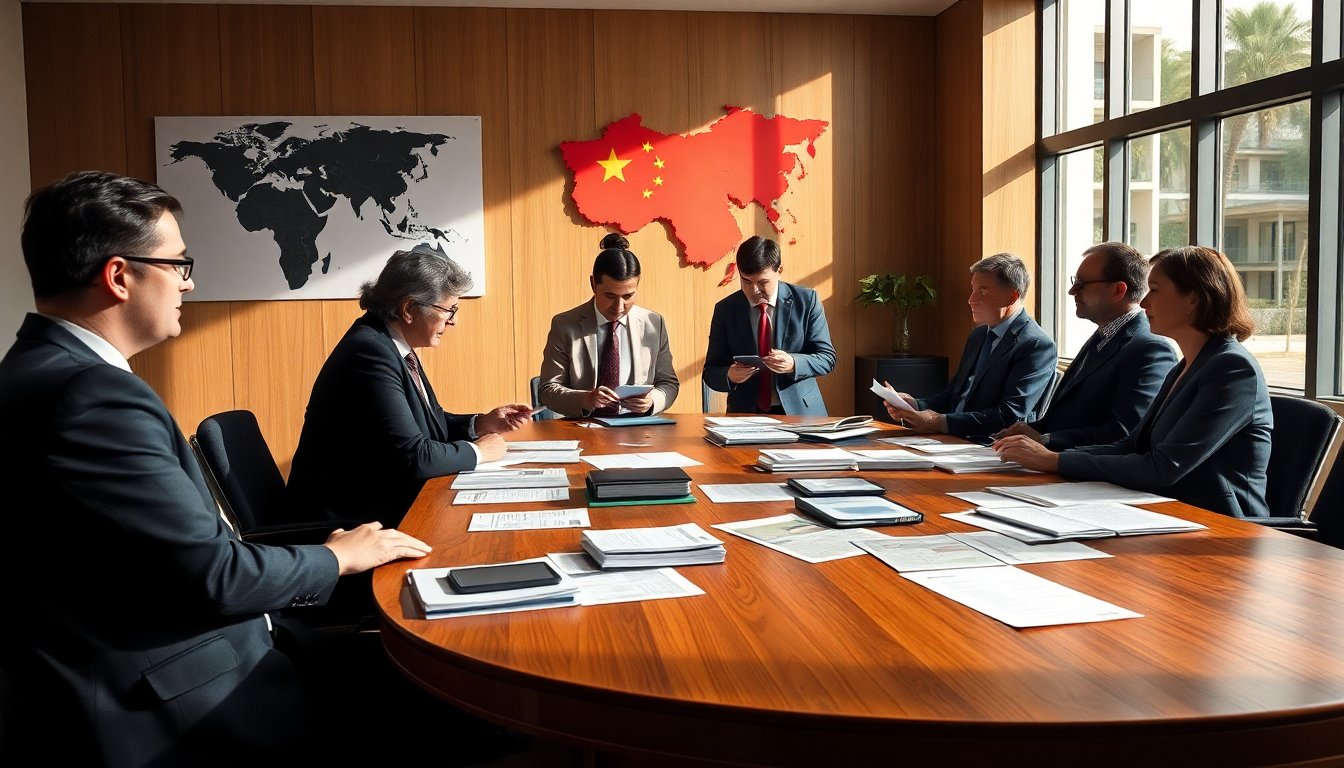Table of Contents
In a significant development in international trade relations, the European Union (EU) is preparing to enhance its dialogue with China regarding the latter’s recent expansion of export controls on essential raw materials. Maroš Šefčovič, the EU Commissioner for Trade, indicated that both parties would engage at multiple levels to address these pressing issues.
During a recent press briefing in Strasbourg, Šefčovič revealed that he had a nearly two-hour phone conversation with China’s Trade Minister, Wang Wentao. The discussion culminated in an invitation for Wang to visit Brussels to explore potential solutions to the new restrictions, which have raised concerns within the EU.
Understanding the context of the restrictions
This month, Beijing announced a broadened list of products and materials that now require export licenses for importers. Among these are rare earth elements and magnets, both of which play a crucial role in various electrification processes, from smartphones to electric vehicles. The urgency of the situation has prompted the EU to act swiftly in finding resolutions.
The implications for European businesses
Šefčovič disclosed that European companies have submitted around 2,000 applications for priority processing to the Chinese authorities. Alarmingly, only about half of these applications have been adequately addressed. This situation not only complicates the trade landscape but also underscores the significance of maintaining smooth supply chains. The trade commissioner emphasized, “We have no interest in escalation. However, this situation casts a shadow over our relationship. Therefore, a prompt resolution is essential.”
As the EU grapples with the implications of these restrictions, the European Commission has indicated that it will begin stockpiling critical raw materials to mitigate potential shortages. These materials are vital across various sectors, including defense and automotive industries, highlighting the multifaceted impact of China’s export restrictions.
Future prospects and collaborative efforts
In light of the escalating tensions surrounding trade, both Brussels and Washington are keen on formulating a collective response to China’s new export controls. It is evident that the EU is determined to reduce its dependency on Chinese resources while simultaneously safeguarding the future of workers in industries reliant on fossil fuels.
Strategic dialogues on global trade
The discussions with China are just one facet of broader negotiations that encompass various aspects of international trade. The EU aims to establish a framework that not only addresses immediate concerns but also lays the groundwork for future collaborations. By fostering open communication channels, both parties hope to mitigate the risk of economic fallout from these export restrictions.
Moreover, the EU’s proactive measures signal a commitment to enhancing its self-reliance when it comes to critical raw materials, a move that could reshape the dynamics of global trade. Policymakers are acutely aware that a balanced approach is necessary to navigate these complex challenges effectively.
As negotiations continue, both sides are expected to engage in further dialogue to ensure that the economic relationship remains intact while addressing the pressing need for resource accessibility. The outcome of these discussions could not only influence the EU-China relationship but also set precedents for international trade practices moving forward.


